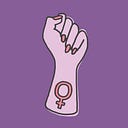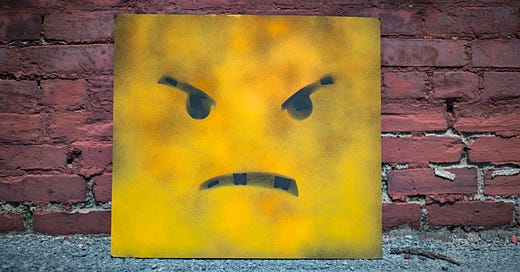

Discover more from Liberating Motherhood
Why do we shame mothers for complaining about the challenges of motherhood?
Complaining about the untenable realities of motherhood is a vital political act.
This weekend I read a piece that left me incandescent with rage. The crux of its argument read something like this:
All the other moms complain about motherhood, and how hard it is, and patriarchy, and maternity leave, and all the bullshit. But not like me. I actually like motherhood. But now I’m afraid to say that because all those other moms hate motherhood! I’m not like the other moms.
Sigh.
It’s neither the first nor the last piece I’ve read with this specific message, but it is the one that caused me to write this article.
The writer makes at least three thought errors:
That complaining about being a mother—and especially about the social forces that make motherhood hard—means a person doesn’t like being a mother.
That she is unique for thinking that motherhood is spiritually and intellectually stimulating, and that people judge her for this belief. The reality is that they judge her for the same reason they judge all mothers: Because she is a mother, and because we love to pretend that motherhood is easy and requires no intelligence.
That it’s no longer acceptable to love motherhood. This is a lot like men claiming it’s no longer acceptable to talk to women. The only socially acceptable position has always been to love motherhood. If you say anything else, you’ll face swift backlash and shame.
So we’re doing this again. We’re telling mothers that if they complain about motherhood, it must be because they don’t like motherhood—and therefore the not-so-subtle implication goes, they must also be bad mothers. In a patriarchy, there is nothing worse than a bad mother.
Not like this mother. This special mother. This rare mother who loves motherhood, unlike all the other mothers. This mother who, apparently, does not understand that we can love hard things, we can complain about things we love and are good at, and that motherhood is never apolitical.
It’s no coincidence that this piece came out on Mother’s Day—a day during which we pretend to worship mothers, but mostly just gaslight and abuse them, then tell them what terrible people they are for disliking the abuse. There’s a long and rich tradition of pieces like this. They serve a very specific and harmful political purpose. And once you see it, you can’t unsee it.
The misogynistic fallacy that mothers shouldn’t complain comes in many forms:
“You ladies just need to choose better partners!”
“You wanted this!” Yeah. So I guess no one is allowed to ever complain about anything they’ve chosen—like restaurants, jobs, partners, colleges, schools, or neighborhoods, for example.
“Moms make everything about themselves, and how it’s so hard for them.”
This idea directly feeds something else, too: all the endless headlines talking about how moms are drowning, while simultaneously pretending that’s just the natural state of motherhood—not something society has chosen to deliberately and knowingly inflict on mothers.
And many of the challenges are completely culturally constructed, and completely unnecessary.
Motherhood is hard when your partner is emotionally absent or abusive, and you therefore do not have a reliable sounding board or support.
Motherhood is hard when you have to do all the labor on your own because there is no village, no community support, and because we do not expect men to do much, if any, parenting labor.
Motherhood is hard when it wrecks your body and when a sexist and racist healthcare system ensures you’ll have to beg for years to get quality care.
Motherhood is hard whether you sleep train or not, breastfeed or not, and no matter what parenting style you adopt. Motherhood is hard because everyone will blame you for your kids’ struggles, and because no matter what you do, society will tell you it’s wrong.
We know that motherhood triggers an unjustified pay gap, even though mothers are more efficient than any other group of worker. That the overwhelming majority of mothers are trapped in marriages where they do almost all the work. That mothers have almost no social support. These are real problems, with real, obvious political solutions.
They are also exactly what most mothers complain about when they complain about motherhood. The financial challenges. The endless work. The exploitation. The near-impossibility of getting anyone to listen when you advocate for your child.
What you almost never hear mothers complain about is the existence of their children.
For some women, in some contexts, it is now a bit safer to talk about the political realities of motherhood.
Doing so is the only way we will ever change anything.
It is also the only way we can protect the next generation—and especially the only way we can protect them from marrying abusive and exploitative men.
Mothers who demand better are bringing about real change. I’ve heard from hundreds of women who have left shitty husbands to reclaim better lives and safer homes for themselves and their children. For the first time ever, domestic labor inequality, emotional labor, and emotional abuse have become a part of the political conversation.
Political change always inspires a backlash. Backlashes exist to reverse progress.
No wonder so many people, so many media outlets, want to call women whiny complainers. No wonder it’s so common to call the people who shoulder an entire society’s worth of work entitled. No wonder our culture wants to pretend that women who demand better don’t like motherhood or love their children.
It’s the same reason men so often call feminist women bitter and angry. The goal is to convince women that it’s an individual problem. That we find motherhood challenging because we aren’t good at it. That maybe we don’t really love our children. That maybe by talking about the challenges of motherhood we are hurting our children by exposing our lack of love for them.
And even if they can’t convince feminist mothers of this bullshit, there’s a secondary audience: non-mothers who might one day be mothers. Framing mothers as bitter complainers who just aren’t good at it, who maybe just shouldn’t have become mothers in the first place, stigmatizes them. And it separates them from young, future mothers, who do not want to be like them. It convinces young women not to listen to current mothers—and in so doing, to replicate their mistakes, their submission to an abusive society, and their willingness to accept an avalanche of abuse all in service of not being called a bad mother.
Patriarchy demands a steady supply of women who believe that women’s suffering is their own fault, and that the struggles of motherhood are individual failings rather than features of a misogynistic culture. It also demands a steady supply of women who want to proudly proclaim that they’re not like all the other girls because they’re special, unaffected by patriarchy, immune to politicized challenges.
The shame these forces attempt to evoke is intentional and calculated.
I love motherhood. I love my kids. I also recognize that the culture in which I am forced to mother is profoundly broken—and designed to break mothers into submission.
Don’t accept this sexist bullying. Call it what it is.
When men make their partners’ lives more difficult, that is a choice.
When society looks the other way, blames mothers, and intensifies the challenges, that’s a choice, too.
It’s not you. It’s patriarchy.
Mothers are allowed to demand better. And if we really love our children and want a better world for them, we must demand better for them.
Subscribe to Liberating Motherhood
For mothers who are pissed off about sexism, household chore inequality, and endless misogynistic bullshit, and for the allies who want a better world for all of us.















It is these powerful articles you've written which ring in all the issues that opened my eyes to my motherhood (and marriage) through becoming a reader of yours.
This piece is fantastic.
My dad, who is a changed version of the partner he was to my mom when they were raising us and my husband (stbxh) recently said the same exact —sentence— to me. I was having separate conversations with each of them two days apart. What were we chatting about? My complaints about my motherhood and the unbelievable amount of labor on my shoulders.
The areas within the article where you —lay out the inequality, political, sexist, mysogynist, patriarchal facts— around our motherhood— align with exactly how I feel. I actually wrote up an email after those conversations with my dad and stbxh and included my mother and sent the email to all 3 of them. What you've shared here with this piece is what I wrote about in my email. I have never been able to articulate my feelings and my worth until I started reading your work. It was in my *brain* but precise and clearly laid out language and terms are what really helps assist us women to —talk about it— and demand change. Thank you again for just being who you are Zawn and what you do as your profession. You speak right to our souls, you honor validating nothing short of our truths, wants, needs and the deserving of having lives as women, mothers, non-mothers and our future generations.
"That she is unique for thinking that motherhood is spiritually and intellectually stimulating, and that people judge her for this belief. The reality is that they judge her for the same reason they judge all mothers: Because she is a mother, and because we love to pretend that motherhood is easy and requires no intelligence." WOW. Yes! Yes to everything you said.
So many of us white women have this knee-jerk impulse to exceptionalize ourselves. "I'm not like those other mothers who complain; I'm one of the good ones" sounds so similar to "But I'm a good white woman! I'm not like the others!" We don't understand how to find strength in the insights we gain from understanding that we are part of a system. And think that we will find strength/safety in being exceptional. It's interesting.